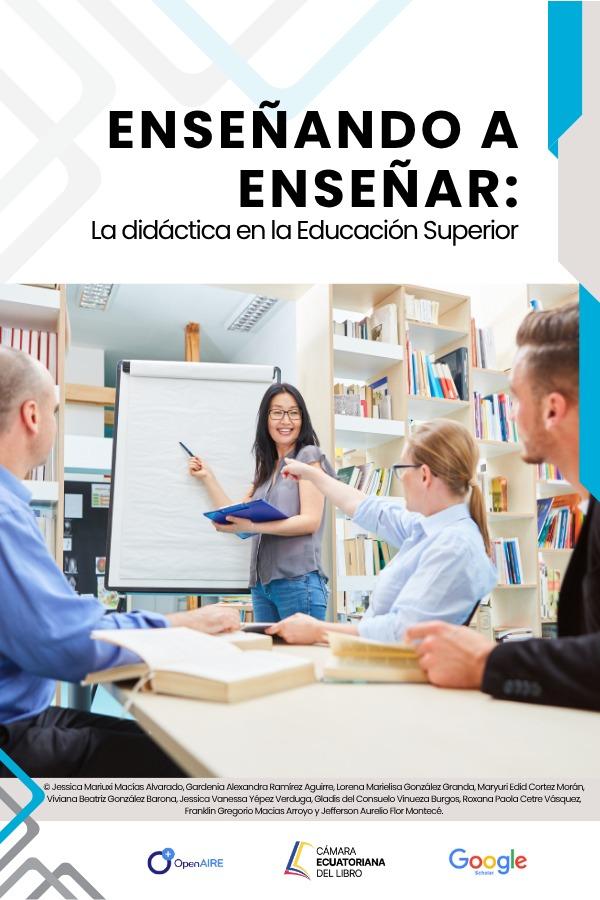Enseñando a enseñar: La didáctica en la Educación Superior
Keywords:
University didactics, Teacher training, Pedagogical innovationSynopsis
The book Teaching to Teach: Didactics in Higher Education is a collective work that analyzes pedagogical renewal in contemporary universities from a critical, humanistic, and inclusive perspective. Throughout its ten chapters, it addresses the main axes of university teacher training: the epistemological foundations of didactics, emerging pedagogical models, competency-based planning, formative assessment, technological mediation, inclusive education, student motivation, and teacher professionalization. The authors—teachers and researchers primarily associated with the Milagro State University (UNEMI)—propose a comprehensive vision of university teaching, in which the teacher acts as a mediator, researcher, and agent of change. The work emphasizes the need to move beyond transmissive models and promote active, reflective, and contextualized teaching, consistent with the challenges of the 2030 Agenda and Ecuadorian public policies in higher education. It also highlights the role of technology, inclusive education, and ethical training in building quality, equitable, and socially engaged education. The text serves as a training tool for teachers in training and practicing teachers, offering methodological strategies, case studies, and practical guidance for rethinking teaching from a transformative perspective. In short, the book consolidates a didactic proposal that combines theory, practice, and innovation to strengthen Ecuadorian and Latin American university education in the 21st century.

Downloads
Published
Series
Categories
License

This work is licensed under a Creative Commons Attribution-NonCommercial-ShareAlike 4.0 International License.
